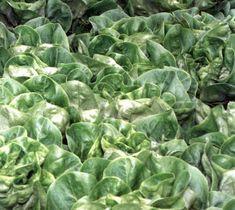
Researchers at the University of Warwick’s plant research arm, Warwick HRI, are deliberately growing a field of ‘bad’ lettuces that have been encouraged to run wild with natural mutations.
Warwick HRI maintains that this single field will prove invaluable to the whole lettuce industry, by breeding better lettuces with bigger yields that are resistant to climate change.
Researchers are looking to methods that will speed up natural breeding in order to aid plant breeders in the future, who will need to produce crops that can withstand the effects of climate change, as well as deliver better yields and quality while consuming fewer resources.
The method being used at Warwick, called Tilling, involves treating lettuce seeds with a chemical. This dramatically increases the number of natural genetic mutations in the lettuce population grown from those seeds. The seeds are grown into plants and DNA is then extracted from each plant to create a ‘library’ of DNA samples that can be rapidly screened by researchers looking for useful changes in important genes. This screening can be repeated many times for many different genes in the lab without having to grow the plants each time; greatly speeding up the breeding process.
Any of the plants that are found to have useful new natural mutations can then be grown from seed for further research and breeding.
Lead researcher on the project Dr Paul Hand said: “The lettuce study at the University of Warwick involves 4,000 lettuce plants, and the seeds and DNA from these should be available to researchers and breeders by the end of the year.”






No comments yet